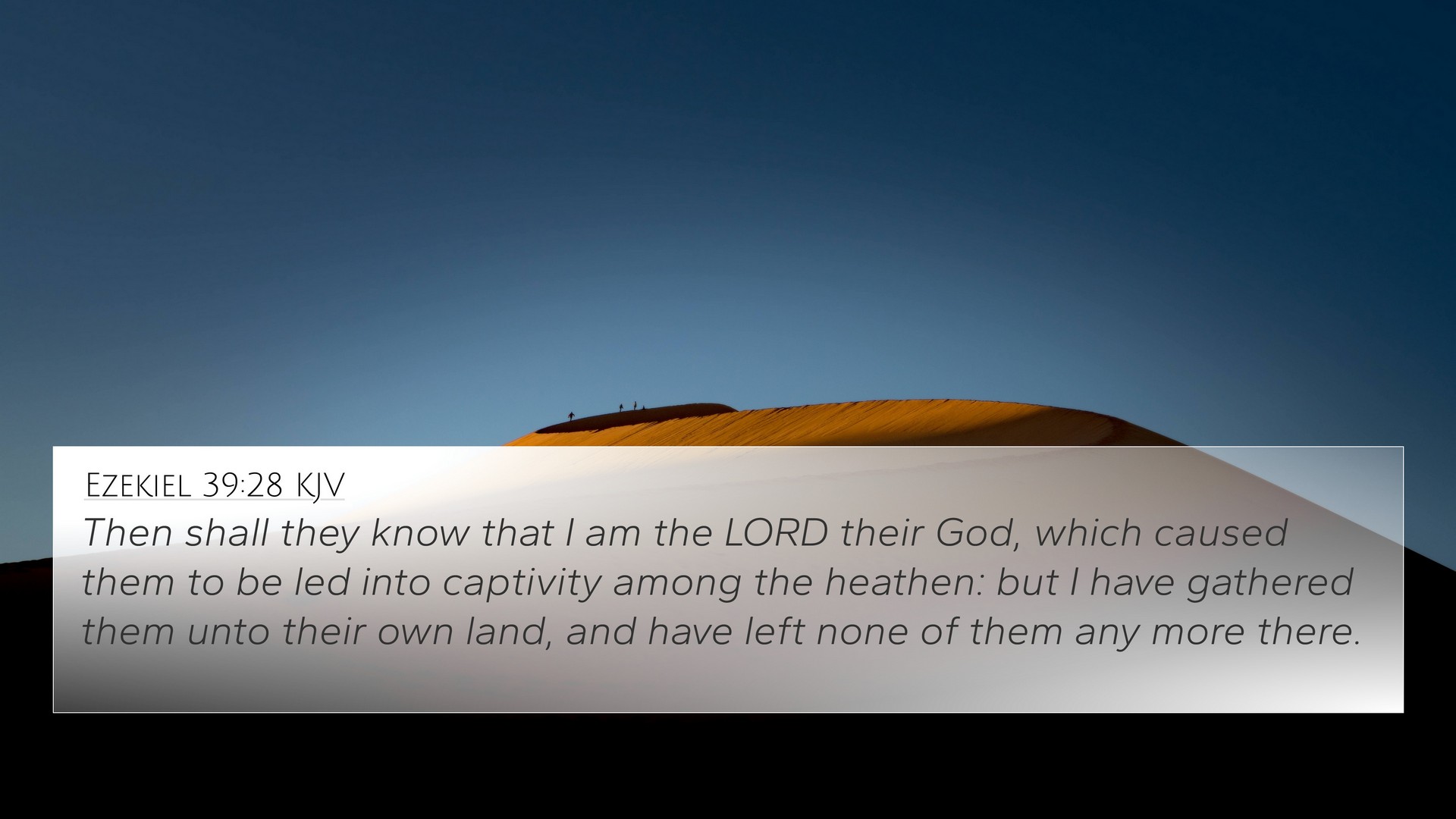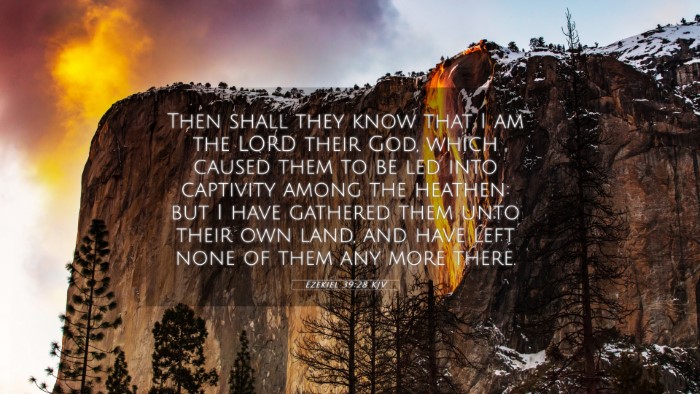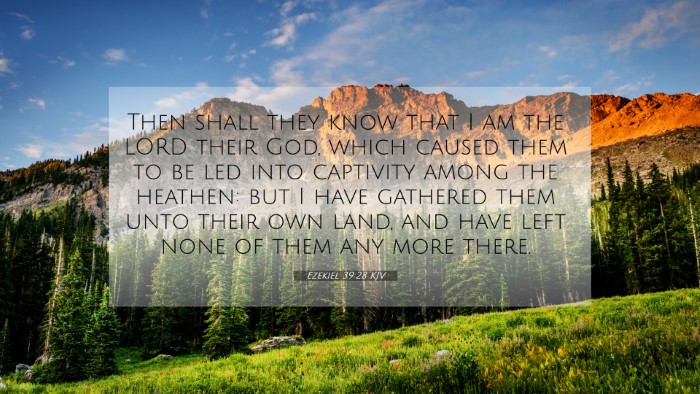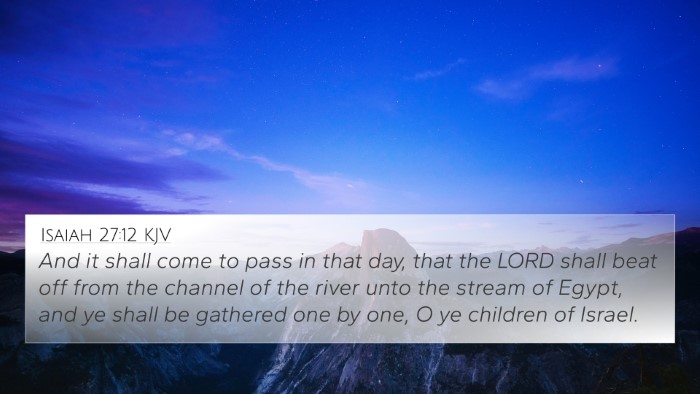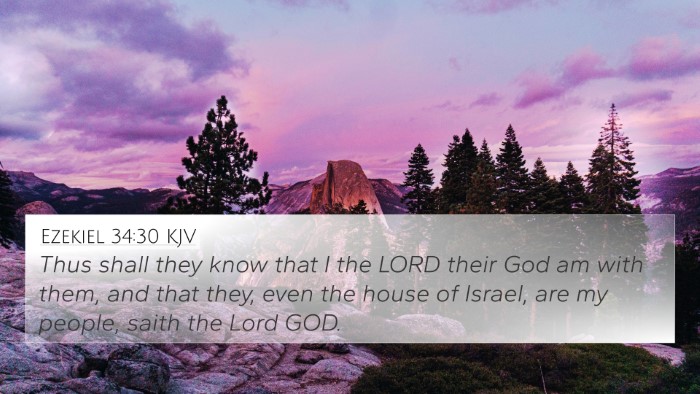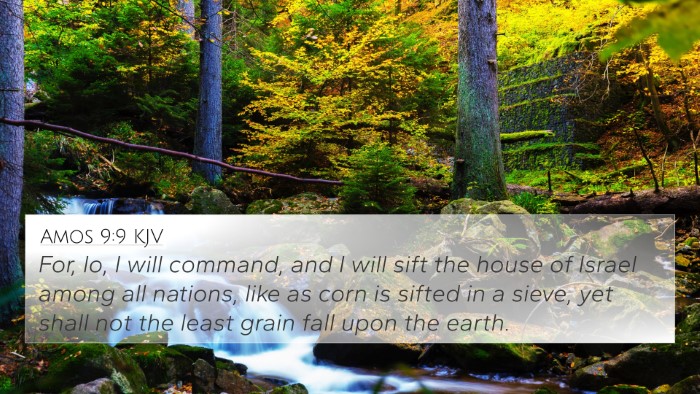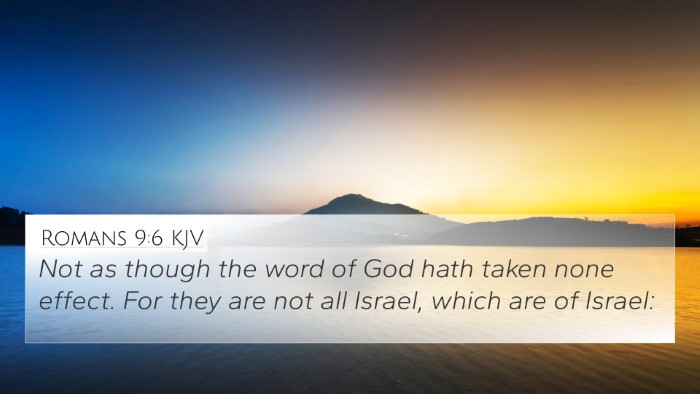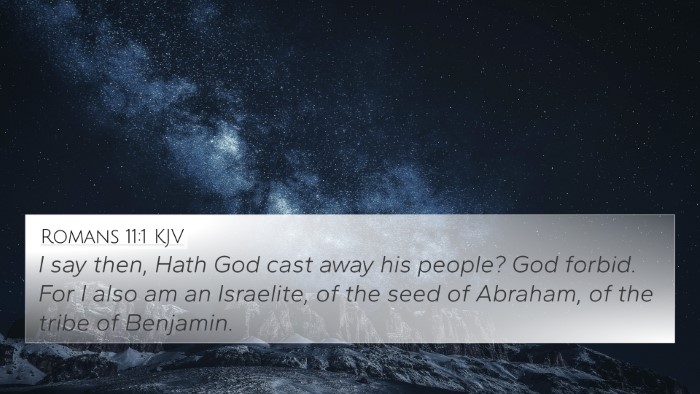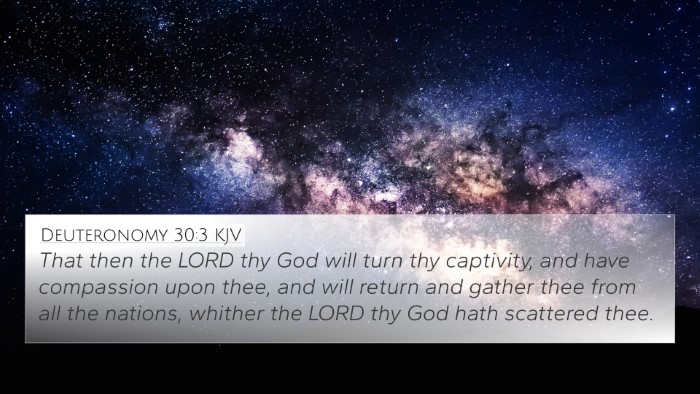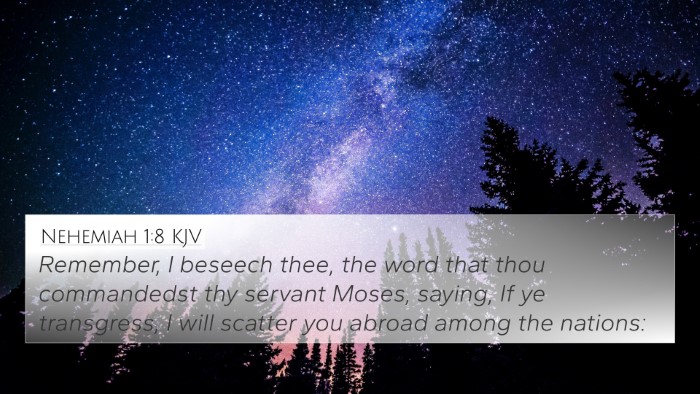Ezekiel 39:28 - Meaning and Interpretation
Ezekiel 39:28 states: "Then shall they know that I am the Lord their God, which caused them to be led into captivity among the heathen: but I have gathered them unto their own land, and have left none of them any more there." This verse carries significant meaning regarding divine restoration and the recognition of God's sovereignty. The insights provided in public domain commentaries help elucidate the message within this scripture.
Summary of Key Insights
- Divine Sovereignty: The verse emphasizes God’s sovereign power in leading His people into captivity due to their disobedience and His capacity to restore them.
- Restoration: The gathering of the Israelites from among the nations signifies the fulfillment of God's promises to His people, indicative of hope and redemption.
- Knowledge of God: The acknowledgment of God’s actions forms a central theme, as it illustrates how the people come to recognize Him as their God through the events of their history.
- Covenant Fulfillment: This text relates to the notion of God fulfilling His covenant with Israel, showcasing both punishment and mercy.
- Judgment and Mercy: The journey from judgment (captivity) to mercy (restoration) reveals the dual nature of God’s relationship with His people.
Connections Between Bible Verses
This verse can be cross-referenced to gain a broader understanding of its themes and connections within the Scriptures. Here are notable Bible verse parallels:
- Isaiah 43:5-6: "Fear not: for I am with thee: I will bring thy seed from the east, and gather thee from the west." This emphasizes God’s promise of gathering His people.
- Jeremiah 30:3: "For, lo, the days come, saith the Lord, that I will turn again the captivity of my people Israel and Judah." This speaks to the prophetic declaration of restoration.
- Zechariah 10:6: "And I will strengthen the house of Judah, and I will save the house of Joseph." God's commitment to strengthen and save His people is reiterated here.
- Ezekiel 34:11-12: "For thus saith the Lord God; Behold, I, even I, will both search my sheep, and seek them out." The imagery of God as a shepherd highlights His concern for His people.
- Romans 11:26: "And so all Israel shall be saved." This New Testament connection reinforces the belief in the restoration of Israel.
- Deuteronomy 30:3-5: This passage prophesies the return of God’s people to their land, linking Old Testament promises to the themes in Ezekiel.
- Matthew 23:37: "O Jerusalem, Jerusalem, thou that killest the prophets, and stonest them which are sent unto thee, how often would I have gathered thy children together..." This reflects God’s desire to restore His people even in their rebellion.
Understanding Ezekiel's Context
The context of Ezekiel speaks to the exiled Israelites during their time of captivity. Through prophetic insight, the chapter encapsulates the dichotomy of God's judgment for sin and His subsequent grace toward repentance.
Matthew Henry highlights the theme of God's "gathering” power, emphasizing that the ultimate goal is not punishment but restoration and recognition of God's nature. Adam Clarke expands this by discussing the future implications of these gatherings and their theological significance.
Conclusion
In conclusion, Ezekiel 39:28 serves as a profound reminder of God’s faithfulness to His promises, His sovereignty in history, and the hope that lies within understanding His divine plan. The acknowledgment of God as the ultimate redeemer is crucial, and this relationship is articulated through the rich tapestry of scriptural cross-references.
SEO and Cross-Referencing Resources
This analysis utilizes a variety of tools for Bible cross-referencing, focusing on how to identify and explore thematic connections between various scriptures. Resources such as a Bible concordance, cross-reference Bible study materials, and comprehensive Bible cross-reference guides are invaluable aids in exploring these connections.
If you're looking for specific Bible verses related to particular themes, consider how the links between the Prophets and the teachings of the Apostles interact. Engaging with the text through comparative study allows for a deeper understanding of the Bible's Teachings over time.
